Today we’d like to introduce you to Dr. Marisa Tellez
Hi Dr. Marisa, we’d love for you to start by introducing yourself.
“If a woman loves a crocodile, she takes on its character.” Independence, strength, and intelligence may be some of the characteristics that this ancient Egyptian proverb is referring to, and qualities that have shaped my character since I was a young girl. At an age when most girls were playing with dolls, I was developing my knowledge of the world’s top predators. Not a day went by that I wasn’t imaging my future career as one of the leading apex predator scientists in the world, broadening the world’s knowledge and respect for these magnificent creatures. After years of self-education on the world’s predators, I developed a great passion for one of the oldest lineages of predators on our planet- the crocodile. I came to realize that scientific research and teaching were paramount in furthering the field of crocodilian biology, as well as providing the knowledge needed to aid in the conservation of these archaic reptiles.
Books, television, and local animal facilities were the only outlets for me to “experience” apex predators as a little girl as I grew up and lived in the suburbs of Los Angeles, CA. As many say, I was a jungle girl trapped in a city girl’s life. I definitely lived a suburbia lifestyle, full of suburban extra-curricular activities: captain of the high school varsity soccer team (my jersey is retired and hangs at my high school), senior class president, a baton twirler, and yes- even was City Princess for a year of my hometown San Gabriel. All a great experience, and maybe gave me the foundation for where I am today- one of the leading scientists and conservationists of crocodilians in Central America.
After graduating with a BA in Cultural Anthropology and a BS in Zoology from the University of California, Santa Barbara, I began working as an anthropologist to study the Mayans in Guatemala as they prepped for 2012. This job was short lived as I realized during this job my passion was conservation, and that I needed to find a path in which I could work with apex predators, particularly crocodilians. I luckily found a job working with reptiles and crocodilians at a wildlife sanctuary in southern California, and soon after began working at the Los Angeles Zoo. It was working at the zoo that I realized I wanted to head back to school and truly pursue scientific research with crocodilians, particularly investigating their interaction with parasites. Up to that point, research in crocodilians and their parasites was deficient in data, and I had found a love with parasites after taking a parasitological class at UCSB.
I wanted to work with wild crocodilians for my PhD, thus 4 months prior to my program starting in September 2008 I headed down to Belize in Central America to get my hands on some wild American crocodiles, and that’s when my life truly began. Since then, I have received my Master’s and PhD from University of California, Los Angeles studying the interaction between parasites and crocodilians (part of my Master’s thesis was published into a book). I quickly became the expert in crocodilians and their parasites, being initiated into the IUCN/Species Survival Commission-Crocodile Specialist Group (CSG). Soon after my membership, my pursuit of conservation with the American crocodiles in Belize, as well as other countries in Central America was noticed, and I was appointed Vice Regional Chair of Latin America for the CSG. Given this appointment, I have assisted various researchers in starting and receiving funding for crocodilian research in their country in Central America and the Caribbean, particularly in Belize.
My goal in crocodilian research and conservation is not just about the pure science, but the management of the habitat, and the involvement of the local community. I am proactive in the involvement of the community, and promoting sustainable development throughout the countries in this region. Although I am a leader in crocodilian conservation, my priority is to educate communites and provide them with the proper tools to become the proper stewards of the local environment, and the true leaders of wildlife conservation. .
Alright, so let’s dig a little deeper into the story – has it been an easy path overall and if not, what were the challenges you’ve had to overcome?
My main struggle was illustrating I was someone capable of working with crocodiles as a woman in a field dominated by men. When working at a wildlife sanctuary in southern California, I showed interest that I wanted to work with the crocodiles, I was told be fellow male colleagues that I couldn’t because I wasn’t strong enough. At university as a master’s student in my first committee meeting with my advisor’s, I had a prominent professor tell me that I needed to go work with something more feminine, “you know, something more fluffy and cute.” I also had a professor at a conference come up to me after a talk and tell me I needed to give him all of my PhD data, “because a woman and someone of [your ethnic] background isn’t capable of analyzing all of this data.” Of course over the years, I faced more challenges because of my gender and the color of my skin for anyone to take me seriously. However, I had built up over the years amazing mentors and a great support group (both men and women) that gave me the strength to overcome the challenges I faced. And now thanks to them, I have established myself as an expert in the world, and can easily take on the judgement of others as it doesn’t even phase me now.
Thanks for sharing that. So, maybe next you can tell us a bit more about your work?
I am a scientist and conservationist, specializing in crocodilian conservation. I am known for my research in population biology and parasitology in crocodilians, and more recently for my community outreach approach. Conservation is not just about wildlife, it’s about people. If we want the long-term success of any conservation and management program, the community needs to be educated about the facts, as well as build pride and stewardship of their natural resources. They need to be part of the conservation. Thus, I have built various programs as well as created an approach in my community outreach efforts to get the community involved and become CrocWise. I am very proud of what my non-profit, the Crocodile Research Coalition, has accomplished in the last 8 years, especially surviving the financial constraints of Covid. We have turned a community’s fear of crocodiles into pride and stewardship in less than a decade.
Can you tell us more about what you were like growing up?
I was a very strong-headed and a very talkative kid. I always took a role of a leader, and I very much always beat to my own drum. I never cared what was cool, what was in style- I had a style like Punky Brewster. I always loved animals and always wanted to do something to help out animals, and try to create more passion and empathy towards animals by people.
I was also a very active kid- played soccer and I was a baton twirler. I see how these two activities prepped me for what I am doing now. Soccer made me athletic and agile, baton twirling made me comfortable in front of a crowd which is needed in regards to community outreach.
Contact Info:
- Website: https://www.crocodileresearchcoalition.org
- Instagram: doctellez_13
- Facebook: Marisa Tellez
- Twitter: doctellez_13
- Youtube: https://www.youtube.com/channel/UCoNOGd3ge8Isu_DWjGvnf6Q
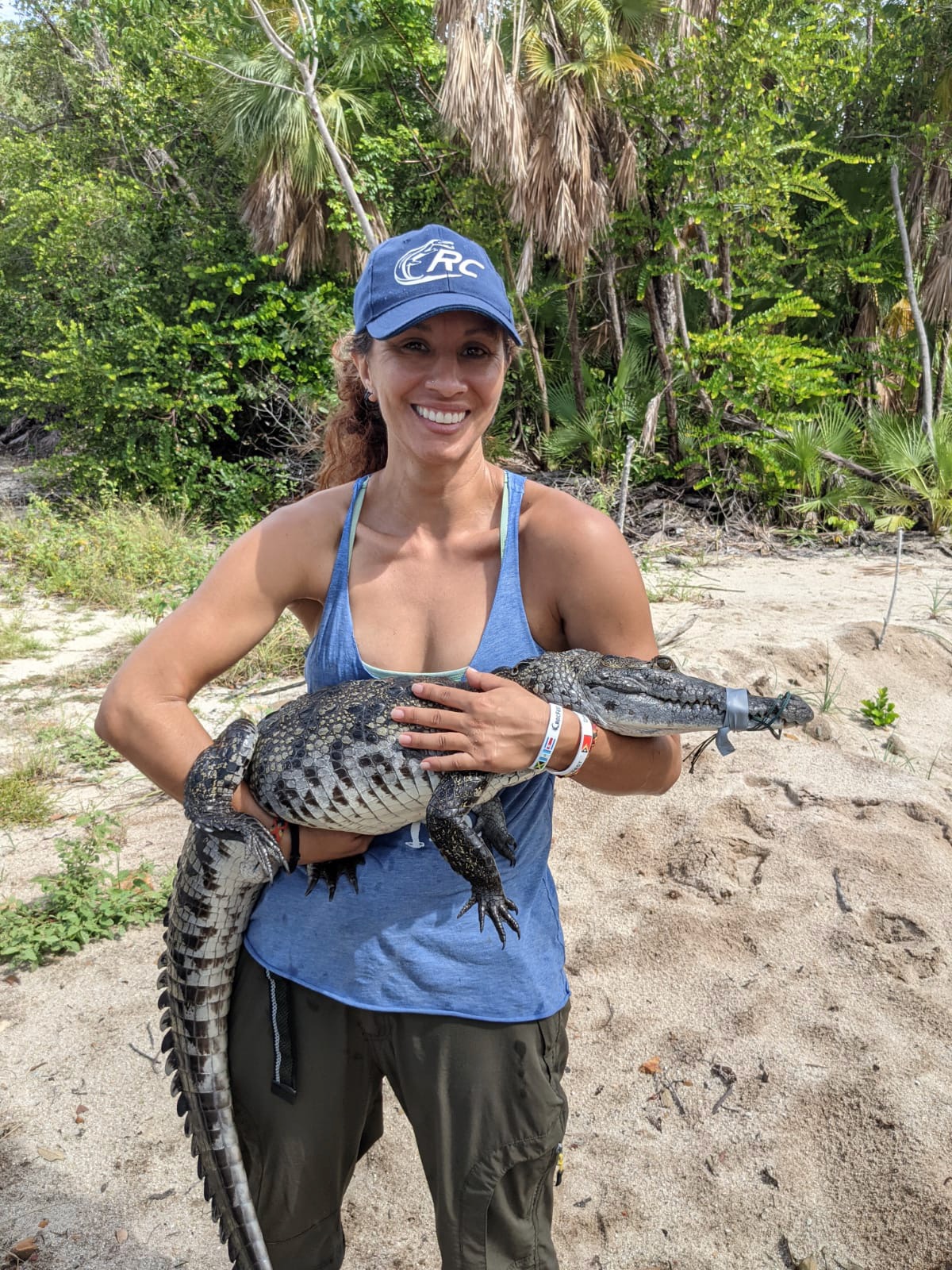
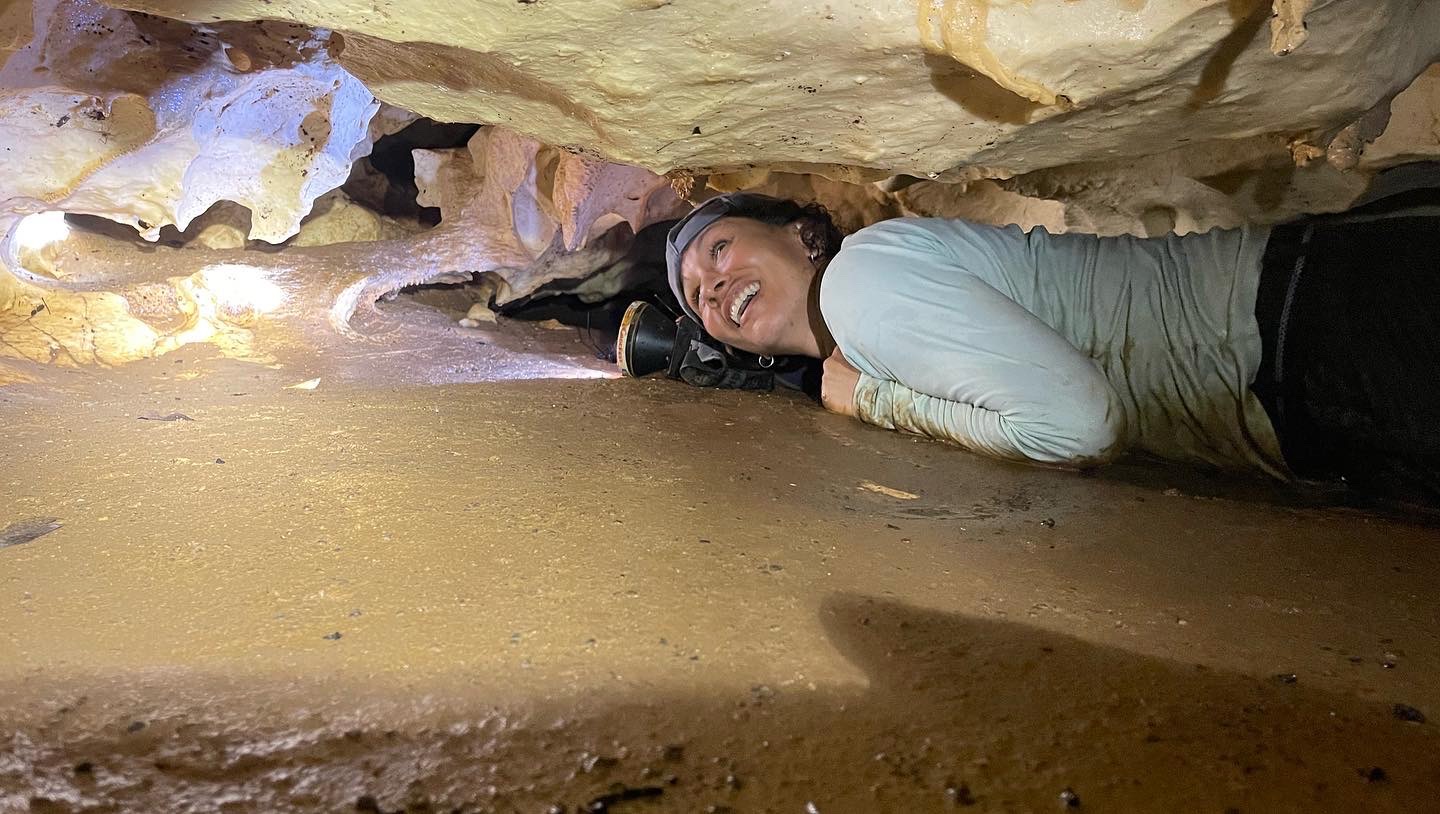
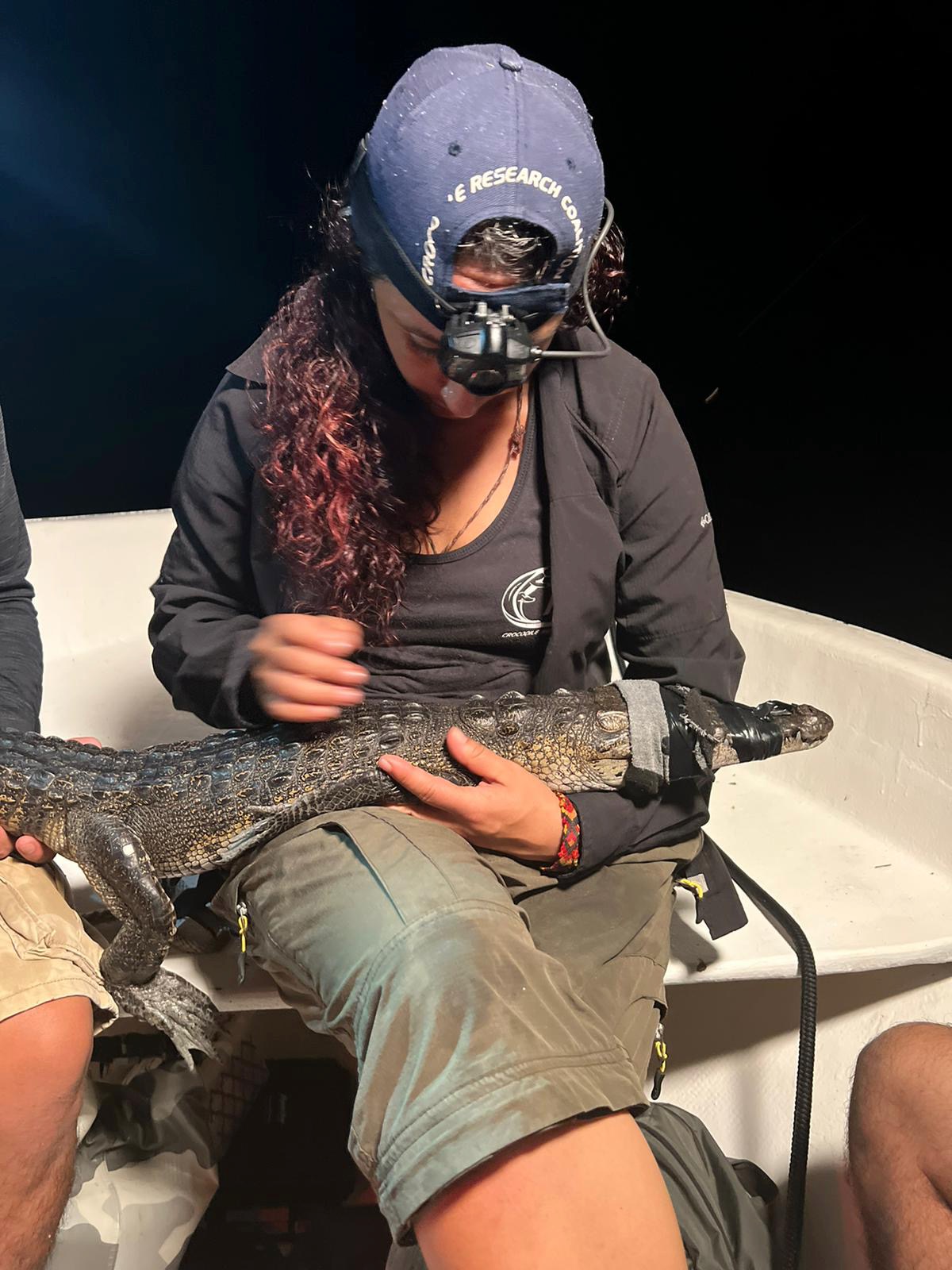
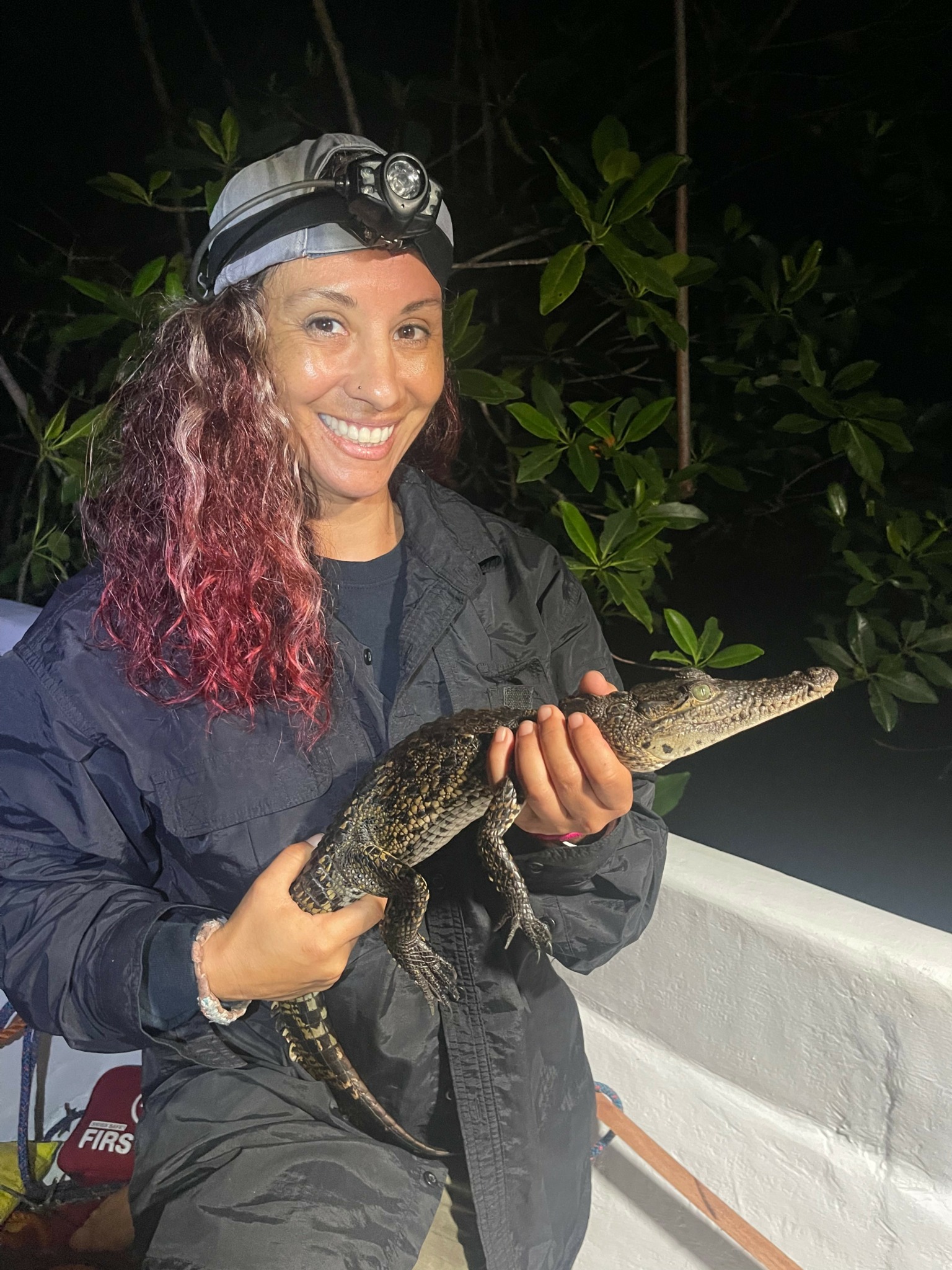
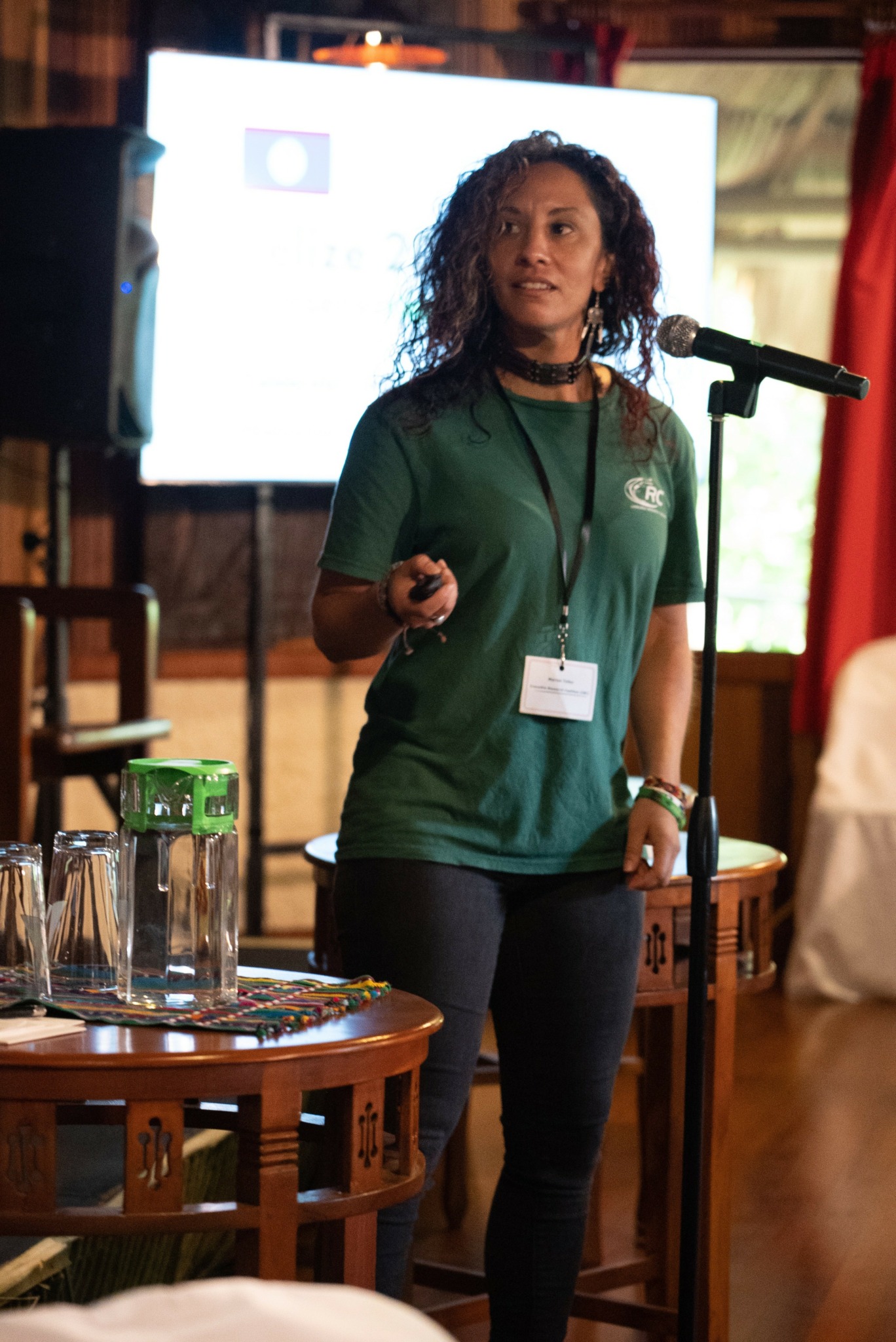
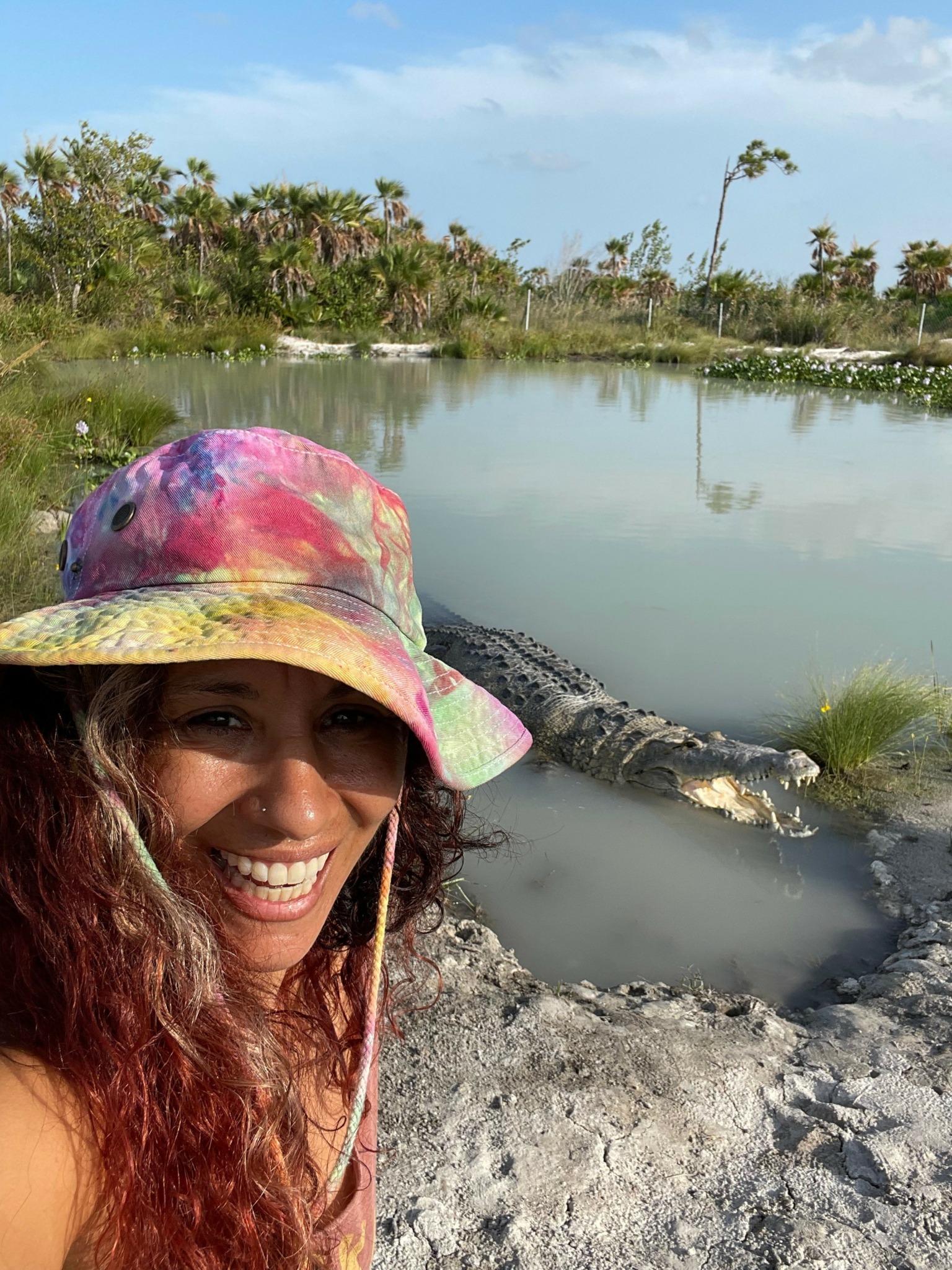
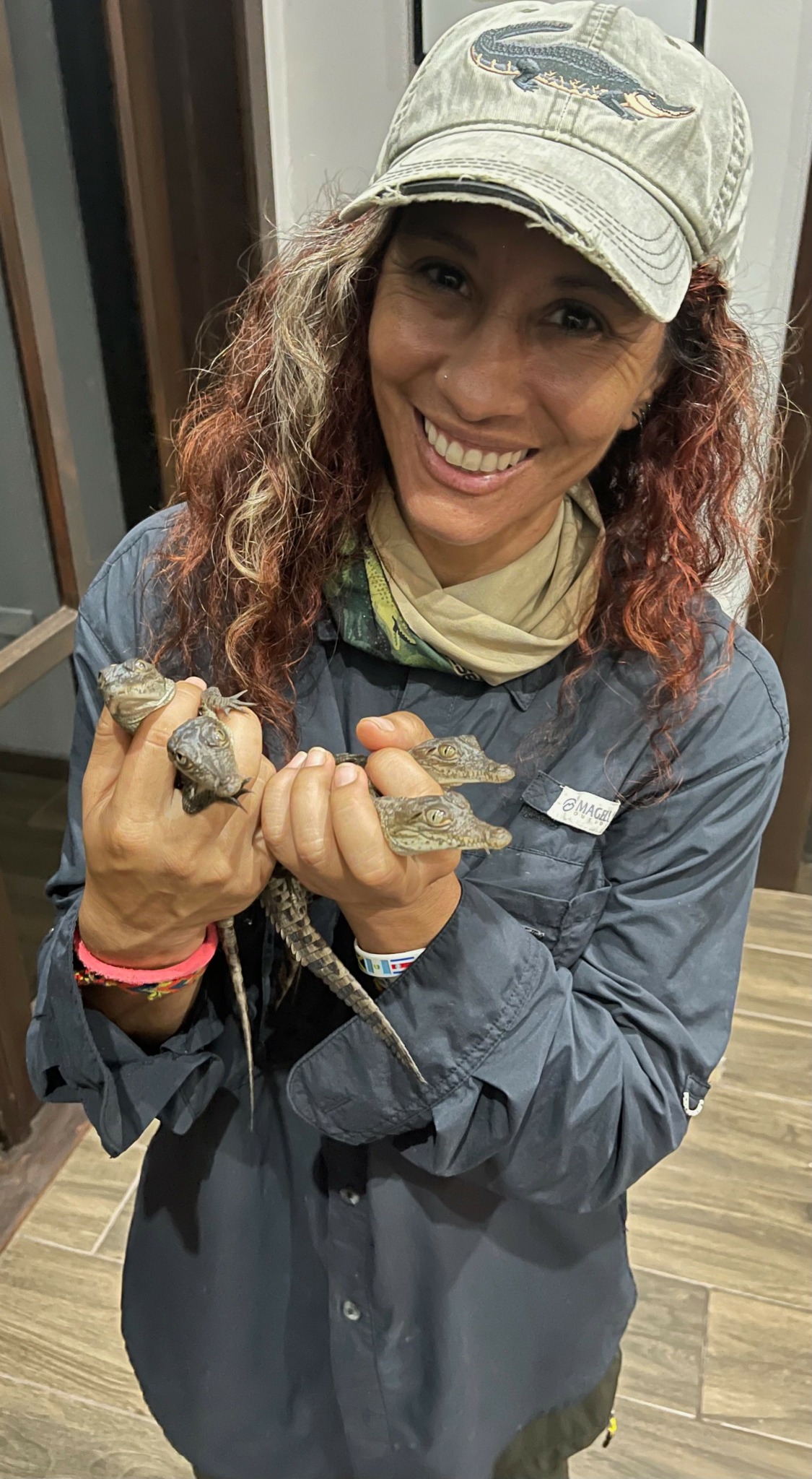
Image Credits
Crocodile Research Coalition


